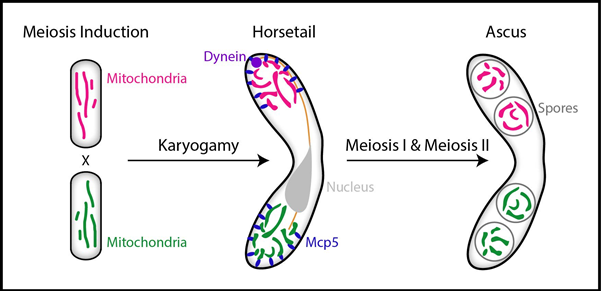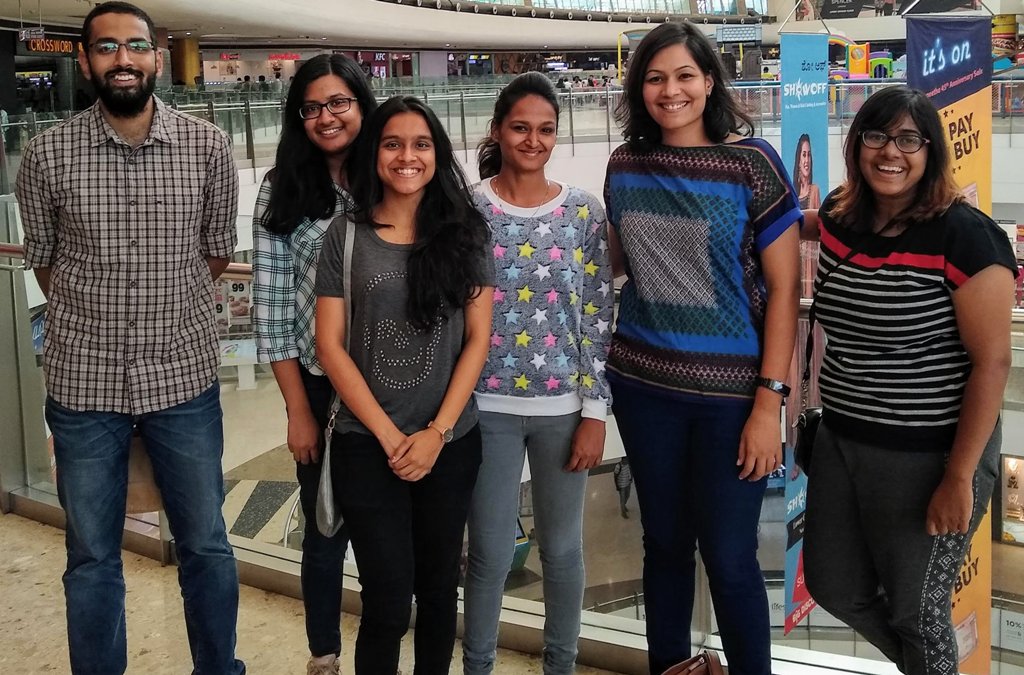Uniparental mitochondrial inheritance

(By Leeba Ann Chacko)
Mitochondria, also known as the ‘powerhouse of the cell’, are cellular machines that provide our bodies with the energy we require to perform various activities ranging from going on adventurous hikes to typing articles about mitochondrial inheritance. Apart from their ability to produce the fuel we need to perform everyday tasks, they also house their own unique DNA. The discovery of the presence of DNA outside the nucleus of a cell was first made in 1963 by a couple, Margit and Sylvan Nass at the Stockholm University, after spending hours observing cells under an electron microscope.
The mitochondrial DNA (mtDNA) accounts for only 37 of the total 20,000 to 25,000 genes that are expressed in our cells. However, what makes the mtDNA so special is that in almost all of us, it is solely inherited from our mothers. This uni-parental inheritance pattern makes mitochondria useful markers for genetic testing companies like 23andme and Ancestry® to study several generations worth of an individual’s maternal lineage — wherein the “mitochondrial eve” (a specific woman from whom a population of humans inherited their mtDNA) of an individual can be traced.
Many unicellular and most multi-cellular organisms inherit mitochondria maternally. The mechanisms by which organisms achieve this vary. For example, in humans, most of the paternal mitochondria reside at the base of the sperm tail and upon fertilization, the sperm loses its tail thereby losing most of the paternal mtDNA. If paternal mitochondria enter the egg during fertilization, they are eliminated with the help of specific ‘mitochondrial destroying’ enzymes. The ones that manage to evade these enzymes would end up being extremely diluted inside the egg because the egg contains close to 200,000 mtDNA molecules while the sperm contains an average of just 5.
However, paternal and bi-parental mitochondrial inheritance are not completely absent in nature. Paternal mitochondrial inheritance has been observed in a few multi-cellular organisms (bivalve mollusks, honeybees, fruit flies and periodical cicadas) as well as in some mammals under specialized lab conditions. For example, lab grown mice, sheep, and cloned cattle have shown to take in paternal mitochondria during in-vitro fertilization experiments. Bi-parental inheritance is also observed in some mushrooms and yeasts like Saccharomyces cerevisiae. In a recent human study, it was discovered that 17 individuals from three unrelated families inherited mtDNA from both parents. Why maternal mitochondrial inheritance occurs more frequently than paternal or bi-parental mitochondrial inheritance is still an open question. Some scientists speculate that uni-parental mitochondrial inheritance could have evolved as a survival strategy to prevent the propagation of selfish mitochondria that would arise from a mixed population.
Interestingly, a recent study from the Indian Institute of Science, published in the Journal of Cell Biology, discovered a unique inheritance pattern in Schizosaccharomyces pombe, also known as “fission yeast”, which is a species of yeast used in traditional brewing. At the end of sexual reproduction, two of the four progeny inherit mitochondria from one parent while the remaining two progeny inherit mitochondria from the other parent. This inheritance pattern is unlike the conventional uni or bi-parental inheritance because not all the resulting progeny inherit mitochondria from a single parent, but at the same time, none of the progeny inherit mitochondria from both parents. The authors discovered that this ‘unique-parental’ mitochondrial inheritance occurs because of a specialized mitochondrial associated protein named, Mcp5.
References: 1) Chacko, Mehta and Ananthanarayanan*. (2019) Cortical tethering of mitochondria by the anchor protein Mcp5 enables uniparental inheritance (in press) (*, corresponding author) http://jcb.rupress.org/content/early/2019/10/02/jcb.201901108
2) Chacko. ‘Unique-parental’ inheritance of mitochondria (Medium article) https://medium.com/@leebachacko/unique-parental-inheritance-of-mitochondria-c9b4cea47d9a

(L-R) Nireekshit Addanki Tirumala (PhD student), Ananya Rajagopal (Summer Intern), Mitali Shah (PhD student), Priyadarshini M (Lab Manager), Vaishnavi Ananthanarayanan (Group Leader) and Leeba Ann Chacko (JRF and lead author on the study)
Website: www.be.iisc.ac.in/~vaish





